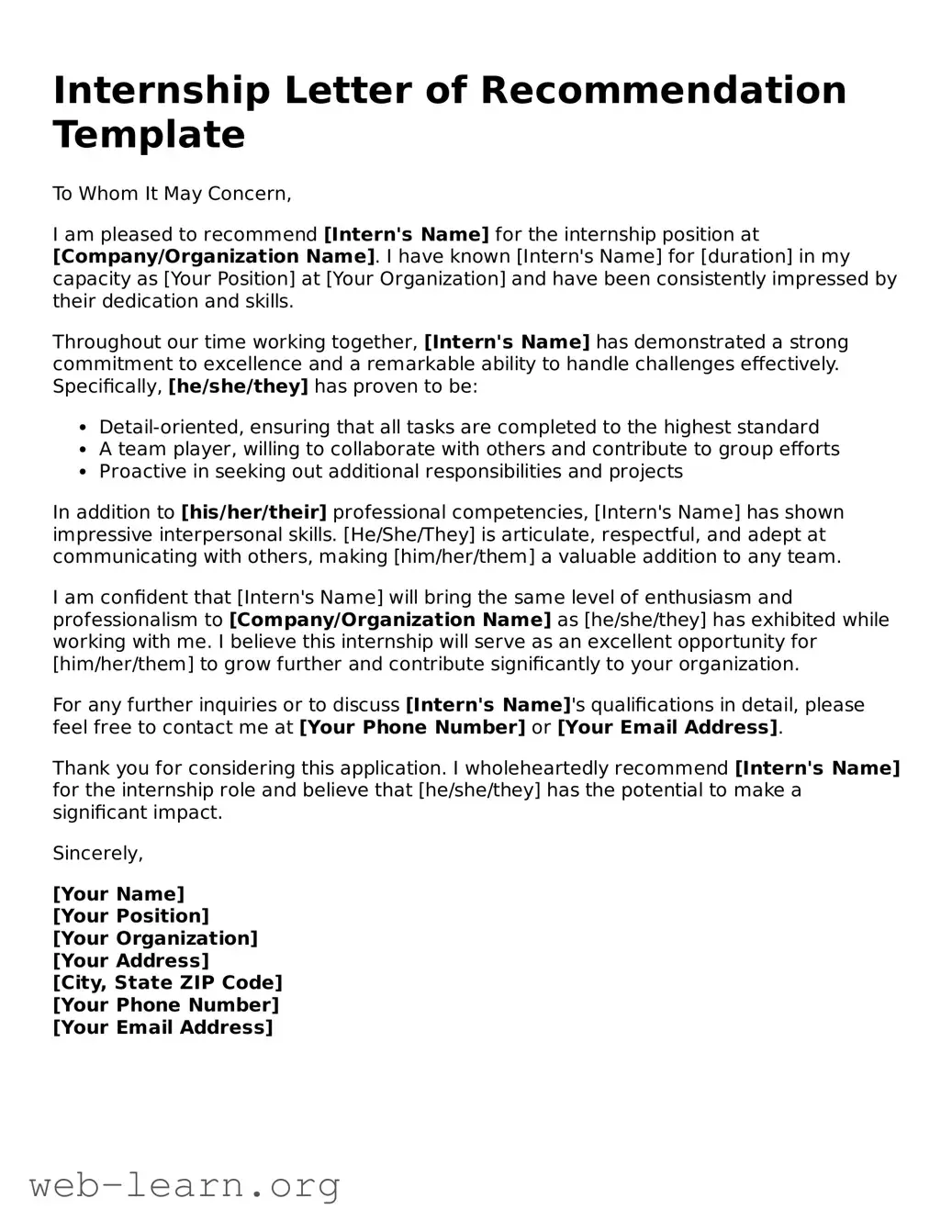Internship Letter of Recommendation Template
To Whom It May Concern,
I am pleased to recommend [Intern's Name] for the internship position at [Company/Organization Name]. I have known [Intern's Name] for [duration] in my capacity as [Your Position] at [Your Organization] and have been consistently impressed by their dedication and skills.
Throughout our time working together, [Intern's Name] has demonstrated a strong commitment to excellence and a remarkable ability to handle challenges effectively. Specifically, [he/she/they] has proven to be:
- Detail-oriented, ensuring that all tasks are completed to the highest standard
- A team player, willing to collaborate with others and contribute to group efforts
- Proactive in seeking out additional responsibilities and projects
In addition to [his/her/their] professional competencies, [Intern's Name] has shown impressive interpersonal skills. [He/She/They] is articulate, respectful, and adept at communicating with others, making [him/her/them] a valuable addition to any team.
I am confident that [Intern's Name] will bring the same level of enthusiasm and professionalism to [Company/Organization Name] as [he/she/they] has exhibited while working with me. I believe this internship will serve as an excellent opportunity for [him/her/them] to grow further and contribute significantly to your organization.
For any further inquiries or to discuss [Intern's Name]'s qualifications in detail, please feel free to contact me at [Your Phone Number] or [Your Email Address].
Thank you for considering this application. I wholeheartedly recommend [Intern's Name] for the internship role and believe that [he/she/they] has the potential to make a significant impact.
Sincerely,
[Your Name]
[Your Position]
[Your Organization]
[Your Address]
[City, State ZIP Code]
[Your Phone Number]
[Your Email Address]
